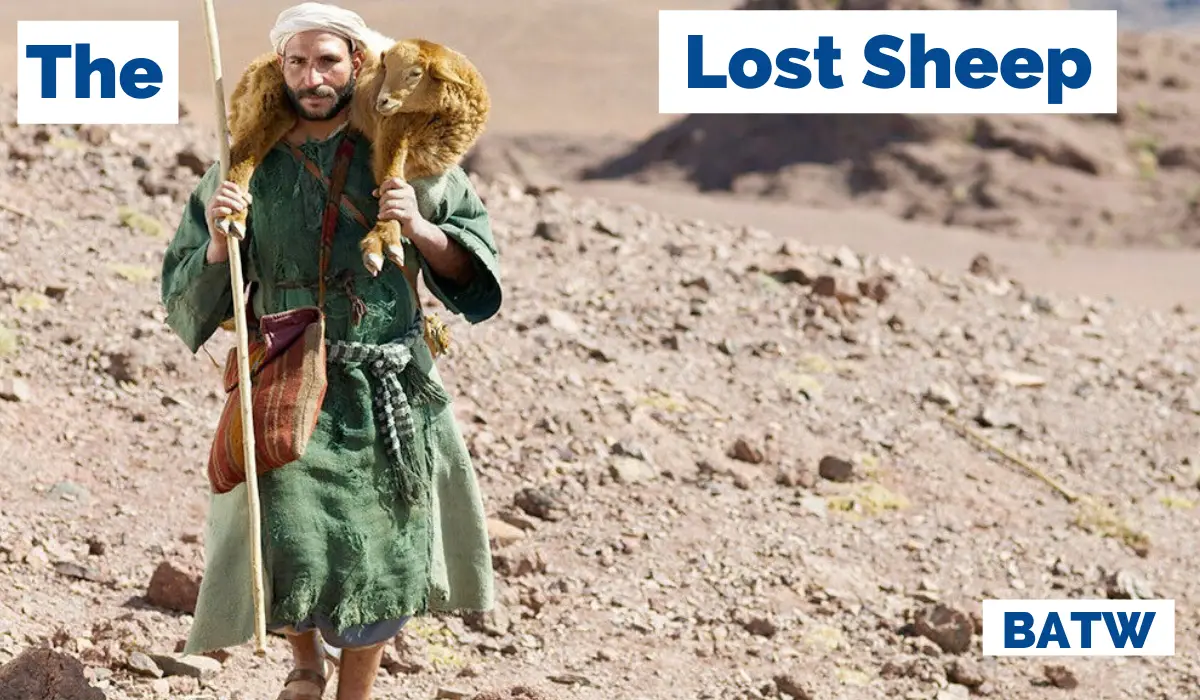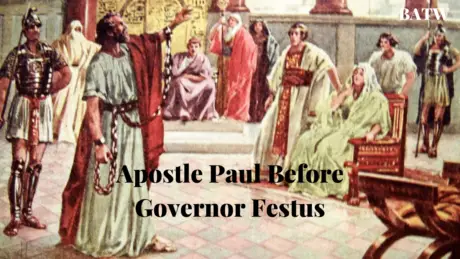The Parable of The Lost Sheep Illuminates The Need For This!
Jesus by utilizing the Parable of the Lost Sheep reveals a Kingdom secret. He informs that whenever this event happens there is a party in heaven!
The sinners came to Jesus to hear him preach but the religious people of the day came to criticize and complain.
But they were curious why a righteous man would eat and drink with sinners.
Jesus, in his usual manner, answered their question by introducing the Parable of the Lost Sheep!
Luke, the Beloved Physician, supplies an account of Jesus’ experience in this respect that I like.
Thus, my main Bible references are Luke 15:1-7 and Matthew 18:10-14.
If you understand the point that this parable makes you will never doubt the need for this other necessary thing that I will remind you of later in this Bible Study.
Details of The Parable of the Lost Sheep
The MD says,
“Then drew near unto him all the publicans and sinners for to hear him”.
(Luke 15:1)
The publicans and sinners came to hear Jesus preach the Word of God.
But the religious leaders, mainly, (the Pharisees and scribes), came to criticize him! (Luke 15:2).
For they say, “This man [receives] sinners, and [he eats] with them”.
(Luke 15:2)
Jesus knew this and responded in his usual manner by speaking a parable.
He introduced the Parable of the Lost Sheep. But he did this with a question.
According to both Apostles Luke and Matthew, Jesus starts the Parable of the Lost Sheep by asking them a very pertinent question.
“And he spake this parable unto them, saying”.
(Luke 15:3)
According to Luke, he asks,
“What man of you, having an hundred sheep, if he lose one of them, doth not leave the ninety and nine in the wilderness, and go after that which is lost, until he find it?”.
(Luke 15:4)
According to Apostle Matthew,
“How think ye? [I]f a man have an hundred sheep, and one of them be gone astray, doth he not leave the ninety and nine, and goeth into the mountains, and seeketh that which is gone astray?”
(Matthew 18:12)
Who Is The Sheep?
In this parable of the Lost Sheep, who does the lost sheep represent?
The sheep, generally, is a Believer in Jesus Christ or the nation of Israel (Ezekiel 34:11-1).
“But ye believe not, because ye are not of my sheep, as I said unto you”.
(John 10:26)
However, the lost sheep represents a person who has not repented and believed the Gospel of Jesus Christ.
On a grand scale, this would be all the Gentiles who were without God and Christ in this world.
Jesus speaking to the Jews inform them about us for he says,
“And other sheep I have, which are not of this fold: them also I must bring, and they shall hear my voice; and there shall be one fold, and one shepherd“.
(John 10:16)
The death, burial, and resurrection of Jesus Christ have brought us into his fold. So, now we are one when we believe in him.
We were the lost sheep until we received the gospel.
On the not-so-grand scale, the lost sheep is any Believer who has gone “astray” from the fold that he or she belongs to.
We call such a Believer a “backslider” because he or she has temporarily set aside his or her beliefs in Jesus Christ for the pleasures of the world respectively.
Who is the Shepherd?
Jesus is that shepherd. But he’s not just any shepherd. He is the good shepherd.
He declares this himself for he says,
“I am the good shepherd, and know my sheep, and am known of mine”.
(John 10:14)
It Makes No Sense to Leave 99 and go After 1!
Why would a shepherd leave ninety and nine sheep to save one? This makes no sense!
This may be the line of reasoning the world would adopt on this topic.
But the good shepherd leaves the ninety and nine sheep because he places the safety and well-being of all his sheep above his own welfare.
“Even so it is not the will of your Father which is in heaven, that one of these little ones should perish“.
(Matthew 18:14)
Let’s recall what the Bible says about him.
“I am the good shepherd: the good shepherd giveth his life for the sheep”.
(John 10:11)
So, from the good shepherd’s perspective, the sheep’s welfare always comes first.
Matthew says it best!
He informs us,
“For the Son of man is come to save that which was lost” .
(Matthew 18:11)
One sheep was lost and the good shepherd went searching for it.
The Son of Man is Our Good Shepherd!
So, if a sheep is lost, he is going to find it and return it to his fold.
There were periods of my life when I was lost! I knew that I should be with the fold, but I choose to be elsewhere living it up!
But the good shepherd never stopped searching for me. He called me by name and I heard and responded.
Thank you Jesus for it’s been many years that I have been back and hearing your voice.
For many sheep been lost is not the end, but unfortunately for many others, it is because they die before the good shepherd finds them.
“And when he hath found it, he layeth it on his shoulders, rejoicing”.
(Luke 15:5)
This is no little rejoicing but a great event. For first, he makes merry by himself.
“And if so be that he find it, verily I say unto you, he rejoiceth more of that sheep, than of the ninety and nine which went not astray”.
(Matthew 18:13)
Then, later when he gets home, he celebrates again with his friends.
Finding the lost sheep is a very important and happy occasion for the good shepherd.
“And when he cometh home, he calleth together his friends and neighbours, saying unto them, Rejoice with me; for I have found my sheep which was lost”.
(Luke 15:6)
What is the Moral of the Parable of the Lost Sheep?
Jesus narrates the details of the Parable of the Lost Sheep just to reveal the following Kingdom’s secret.
“I say unto you, that likewise joy shall be in heaven over one sinner that repenteth, more than over ninety and nine just persons, which need no repentance”.
(Luke 15:7)
Thus, by saying “likewise”, in the verse immediately above, he’s comparing the lost sheep to the “one sinner” who repents, and the 99 to the “just persons” who have repented already.
And simultaneously he’s also contrasting Believers with sinners.
This is the point or lesson, or moral of the entire parable.
The scripture quoted above reveals to us that heaven is happy when a person repents and turns to God.
Do you desire heaven to rejoice because of your actions? Then repent and turn to God, now!
What Lesson Does the Parable of the Lost Sheep Teach Us?
Many so-called “Christians” question the need for repentance.
They ask, if Jesus Christ has made us just and righteous before God then why do we need to repent?
Thus, they are comparing apples and bananas! How does justification impact repentance?
Don’t confuse the two and confuse yourself and others.
Consequently, to emphasize the importance of repentance to humanity, Jesus expounds the proverb of the Lost Sheep to drive home the monumental fact that heaven has a party whenever a sinner repents! (Luke 15:7).
Then, I want to repent every day! But not for the same sins.
In closing, this parable of Jesus teaches a monumental lesson.
Jesus loves us and he does not want to see us perish; therefore, he is always seeking and searching for the lost sheep to restore it to his fold.
We have hope in Jesus Christ!
Thanks to Free Bible Images for this photo.
Book Recommendation
The link below is an affiliate one. This is a link to Amazon to my first book. Many of the principles I discussed in this Bible Study I have examined at length in “Living Soul: In The Image of God”.
When you purchase “Living Soul” through it, I will receive a small commission to support this website. Thank you for assisting me to continue this great work.



